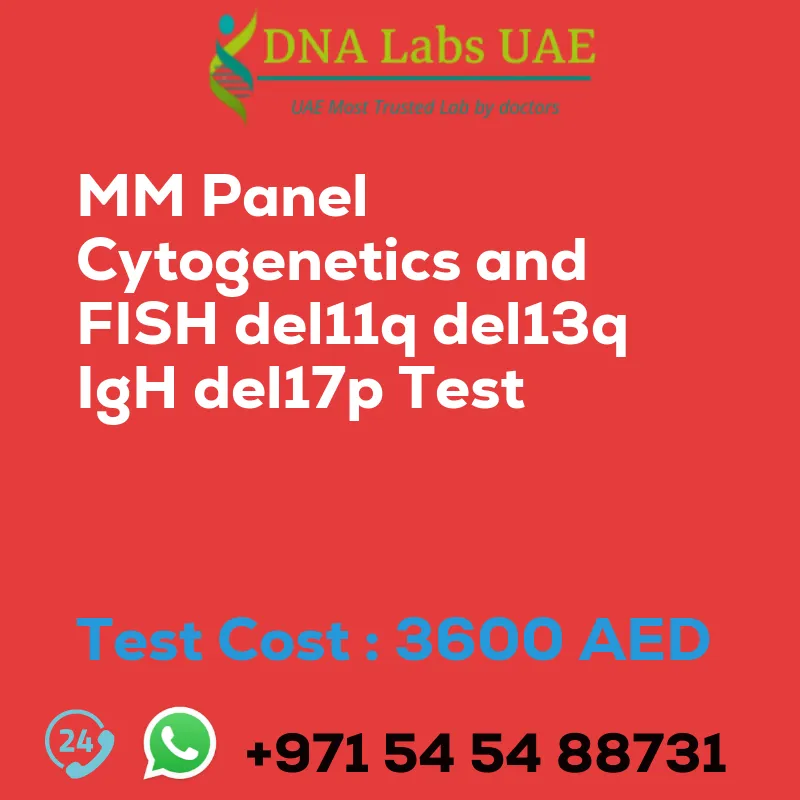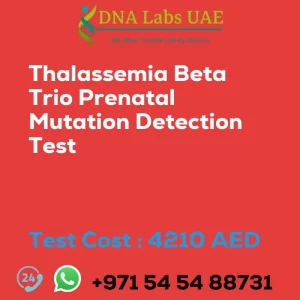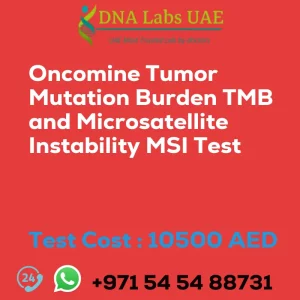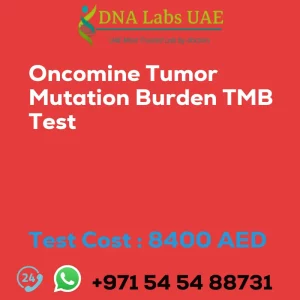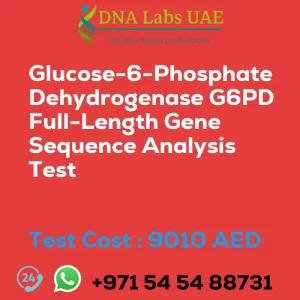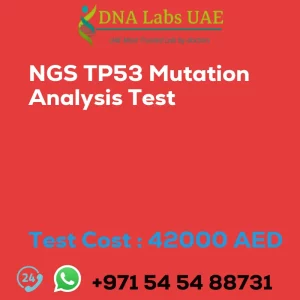MM PANEL Cytogenetics and FISH del11q del13q IgH del17p Test
Test Name: MM PANEL Cytogenetics and FISH del11q del13q IgH del17p Test
Components: Sodium Heparin Vacutainer (2ml)
Price: 3600.0 AED
Sample Condition: Bone marrow/ Peripheral blood (Transport immediately)
Report Delivery: 5-7 days
Method: Cell Culture + FISH
Test type: Genetics
Doctor: Gynecologist
Test Department: Pre Test Information
MM PANEL (Cytogenetics + FISH del(11q), del(13q), IgH, del(17p)] can be done with a Doctors prescription. Prescription is not applicable for surgery and pregnancy cases or people planning to travel abroad.
Test Details
Panel Name: Cytogenetics + FISH [del(11q), del(13q), IgH, del(17p)]
Panel Description: The Cytogenetics + FISH [del(11q), del(13q), IgH, del(17p)] panel is a comprehensive genetic testing panel used to detect specific chromosomal abnormalities associated with various diseases, particularly hematological malignancies. This panel combines conventional cytogenetic analysis with fluorescence in situ hybridization (FISH) techniques to identify specific genetic alterations in the chromosomes.
Genetic Alterations Detected:
- del(11q): This refers to the deletion of genetic material on the long arm of chromosome 11. It is commonly associated with chronic lymphocytic leukemia (CLL) and predicts a poor prognosis.
- del(13q): This refers to the deletion of genetic material on the long arm of chromosome 13. It is the most frequent cytogenetic abnormality in CLL and is associated with a favorable prognosis.
- IgH: This refers to the immunoglobulin heavy chain locus on chromosome 14. Rearrangements involving IgH are commonly seen in B-cell lymphomas and multiple myeloma.
- del(17p): This refers to the deletion of genetic material on the short arm of chromosome 17. It is associated with a poor prognosis in CLL and other hematological malignancies.
Clinical Applications:
- Diagnosis: The panel helps in confirming the diagnosis of hematological malignancies, such as CLL and lymphomas, by detecting specific chromosomal abnormalities.
- Prognosis: The presence or absence of specific genetic alterations can provide valuable prognostic information, helping to predict the course of the disease and guide treatment decisions.
- Monitoring: The panel can be used to monitor disease progression and response to therapy, as the presence or persistence of specific genetic abnormalities may indicate treatment resistance or relapse.
Testing Methodology:
- Conventional Cytogenetics: Chromosome analysis is performed using G-banding techniques to assess the overall chromosomal structure and identify gross abnormalities.
- Fluorescence In Situ Hybridization (FISH): FISH uses fluorescent probes that bind to specific DNA sequences to detect specific chromosomal abnormalities, such as deletions or rearrangements.
Sample Requirement: The panel requires a bone marrow or peripheral blood sample from the patient. The sample is processed to obtain metaphase chromosomes for cytogenetic analysis and interphase cells for FISH analysis.
Turnaround Time: The turnaround time for this panel varies depending on the laboratory, but it typically ranges from 7 to 14 days.
Limitations:
- The panel may not detect all possible genetic abnormalities associated with the targeted diseases. Additional testing or alternative methods may be necessary for a comprehensive evaluation.
- False-negative or false-positive results are possible, and confirmatory testing may be required in some cases.
- The panel is specific to the targeted genetic alterations and does not assess other potential genetic or molecular abnormalities that may be relevant to the disease.
| Test Name | MM PANEL Cytogenetics and FISH del11q del13q IgH del17p Test |
|---|---|
| Components | Sodium Heparin Vacutainer (2ml) |
| Price | 3600.0 AED |
| Sample Condition | Bone marrow\/ Peripheral blood (Transport immediately) |
| Report Delivery | 5-7 days |
| Method | Cell Culture + FISH |
| Test type | Genetics |
| Doctor | Gynecologist |
| Test Department: | |
| Pre Test Information | MM PANEL (Cytogenetics + FISH del(11q), del(13q), IgH, del(17p)] can be done with a Doctors prescription. Prescription is not applicable for surgery and pregnancy cases or people planing to travel abroad. |
| Test Details |
Panel Name: Cytogenetics + FISH [del(11q), del(13q), IgH, del(17p)] Panel Description: The Cytogenetics + FISH [del(11q), del(13q), IgH, del(17p)] panel is a comprehensive genetic testing panel used to detect specific chromosomal abnormalities associated with various diseases, particularly hematological malignancies. This panel combines conventional cytogenetic analysis with fluorescence in situ hybridization (FISH) techniques to identify specific genetic alterations in the chromosomes. Genetic Alterations Detected: 1. del(11q): This refers to the deletion of genetic material on the long arm of chromosome 11. It is commonly associated with chronic lymphocytic leukemia (CLL) and predicts a poor prognosis. 2. del(13q): This refers to the deletion of genetic material on the long arm of chromosome 13. It is the most frequent cytogenetic abnormality in CLL and is associated with a favorable prognosis. 3. IgH: This refers to the immunoglobulin heavy chain locus on chromosome 14. Rearrangements involving IgH are commonly seen in B-cell lymphomas and multiple myeloma. 4. del(17p): This refers to the deletion of genetic material on the short arm of chromosome 17. It is associated with a poor prognosis in CLL and other hematological malignancies. Clinical Applications: 1. Diagnosis: The panel helps in confirming the diagnosis of hematological malignancies, such as CLL and lymphomas, by detecting specific chromosomal abnormalities. 2. Prognosis: The presence or absence of specific genetic alterations can provide valuable prognostic information, helping to predict the course of the disease and guide treatment decisions. 3. Monitoring: The panel can be used to monitor disease progression and response to therapy, as the presence or persistence of specific genetic abnormalities may indicate treatment resistance or relapse. Testing Methodology: 1. Conventional Cytogenetics: Chromosome analysis is performed using G-banding techniques to assess the overall chromosomal structure and identify gross abnormalities. 2. Fluorescence In Situ Hybridization (FISH): FISH uses fluorescent probes that bind to specific DNA sequences to detect specific chromosomal abnormalities, such as deletions or rearrangements. Sample Requirement: The panel requires a bone marrow or peripheral blood sample from the patient. The sample is processed to obtain metaphase chromosomes for cytogenetic analysis and interphase cells for FISH analysis. Turnaround Time: The turnaround time for this panel varies depending on the laboratory, but it typically ranges from 7 to 14 days. Limitations: 1. The panel may not detect all possible genetic abnormalities associated with the targeted diseases. Additional testing or alternative methods may be necessary for a comprehensive evaluation. 2. False-negative or false-positive results are possible, and confirmatory testing may be required in some cases. 3. The panel is specific to the targeted genetic alterations and does not assess other potential genetic or molecular abnormalities that may be relevant to the disease. |

